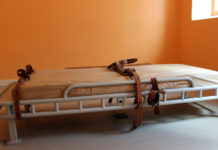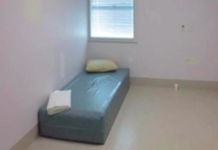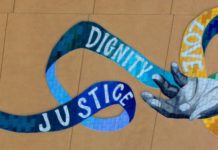Danger Ahead if HR 2646 (the “Murphy Bill”) Passes!
Dear Reader, I am reaching out to you in the hope that you will get this message in time to act! Even if you only have time to read the first two sentences of this blog, please click here for instructions on how you can win the hearts and minds of our federal legislators and help them understand why HR 2646 – proposed by Rep. Tim Murphy and called the Helping Families in Mental Health Crisis Act – is a bad bill
MIA Survey: Ex-patients Tell of Force, Trauma and Sexual Abuse in America’s Mental Hospitals
In a MIA survey of people who had been patients in mental hospitals, nearly 500 respondents told of an experience that was often traumatic, and frequently characterized by a violation of their legal rights, forced treatment with drugs, and physical or sexual abuse. Only 17% said they were “satisfied” with the “quality of the psychiatric treatment” they received.
The CHRUSP Call to Action, and Its Significance
Various instruments of the United Nations have commented on forced treatment, or involuntary confinement, or both (for details, see Burstow, 2015a), and a number of truly critical additions to international law have materialized. Arguably, the most significant of these is the Convention on the Rights of Persons with Disabilities. What makes it so significant? For one thing, it is because this landmark convention puts forward nothing less than a total ban on both involuntary treatment and the involuntary confinement of people who have broken no laws.
Garth Daniels Suing Over 75 Shock Treatments without Consent
"In a rare intervention, the government has asked Victoria's Chief Psychiatrist for a report on Garth Daniels, a patient diagnosed with schizophrenia, whose case...
Study Identifies Psychiatric Patients at Greatest Risk of Coercion
In an effort to reduce coercion, researchers isolate associated factors including age, relationship status, location, and diagnosis.
“A Psychiatrist Opposes H.R. 2646: Here’s Why”
Writing for the Campaign for Real Change in Mental Health Policy, psychiatrist Coni Kalinowski implores others not to support the Murphy Bill “or any other legislation that encourages the use of involuntary outpatient commitment for psychiatric treatment.” “For 9 years, I trained and worked in Wisconsin where involuntary outpatient commitment has been used to force people into treatment for over 30 years, and I can tell you first hand, it does far more harm than good to individuals, it is very expensive, and it does not address the public health and safety issues that people hope it will.”
Psychiatric Survivors Left Out Of UK Smoking Ban Debate
As the UK debates whether to ban smoking inside and outside of mental health hospitals, the BMJ has solicited opinion pieces on the debate for an upcoming issue. However, psychiatric survivors have come forward alleging that the BMJ refused to print their pieces unless they removed descriptions of forced treatment and coercive care.
From Phrenology to Brain Scans: How Shaky Neuroscience has Influenced Courts
In “When Phrenology Was Used in Court,” Geoffrey S. Holtzman writes for Slate about the spurious use of brain science in legal cases. In the 1800’s the “science of phrenology” promised to reveal criminal psychological traits by measuring the skull and today defense teams still employ neurogenetic explanations for their client’s violent behavior.
How I Know That Psychiatric Hospitals Don’t Cure Gun Violence
In this piece for the Hartford Courant, Kathleen Flaherty describes why President Trump's assertion that more psychiatric hospitals would prevent mass shootings is inaccurate and...
Appealing to our Elected Representatives
This is the final of four installments about the bizarre, ongoing conduct of psychiatrists at Upton House, an Eastern Health psychiatric facility in Melbourne, and the collusion with their conduct by all relevant agencies. This last installment will document the failure, so far, of the State and Federal Governments to intervene in even this most extreme and blatant example of abuse of power by psychiatry. If I, as a Professor of Clinical Psychology with 40 years clinical and research experience in this field, can be so easily dismissed/ignored by the relevant systems in Victoria, what chance do the average users of mental health services and their families have of being heard in this State?
Lancet Study Questions Safety of Locked Psychiatric Wards
A new study published in Lancet Psychiatry challenges the common practice of locking psychiatric wards to prevent patients from attempting suicide or leaving against...
Support CRPD Absolute Prohibition of Commitment and Forced Treatment
Mad In America bloggers, and everyone who is interested, you are cordially invited to participate in a Campaign to Support the CRPD Absolute Prohibition of Commitment and Forced Treatment. The requested action is to write a blog post or contribute artwork, relevant to the purpose of the campaign, i.e. discussing and supporting the absolute prohibition that is promulgated under the Convention on the Rights of Persons with Disabilities (CRPD). Posts should be ready for March 29, 2016, the opening day of the 15th session of the Committee on the Rights of Persons with Disabilities.
Mental Health Seclusion to be Scrapped After UN Condemnation
From Stuff: In 2015, the United Nations Committee Against Torture expressed concern at New Zealand's use of seclusion against mental health patients. According to a...
Foxes Guarding the Henhouse: the Role of the Chief Psychiatrist
I do not wish to discuss an individual patient. I wish to discuss the conduct of the psychiatrists at Upton House, Dr Katz in particular, who have been responsible for the administering of over 50 ECTs consecutively to a patient, and have reportedly repeatedly restrained this patient to a bed, on one occasion for approximately 60 consecutive days.
Coercion in Care
To this day I do not know how I found my way back. I think it might’ve had something to do with willpower, as I was NOT going to lose myself. I was NOT going to end up like those people who were living indefinitely in the hospital—those “chronic schizophrenics”, as they say. I was going to find my way back, back to myself.
Nuanced History of Asylums Shows Context Matters
A bottom-up approach to understanding the history of asylums allows us to learn from past successes and failures in the mental health system.
“All for the Best of the Patient”
For psychiatric ‘help’ to happen by force is a paradox and makes absolutely no sense. It can destroy people's personality and self-confidence. It can lead, in the long run, to physical and psychological disability. My dear daughter Luise got caught in this ‘helping system’ by mistake, but she didn't make it out alive. I'm sad to say I later discovered that the way Luise was treated was more the rule than the exception.
New Zealand Man Died After Being Restrained in Japan
From The Guardian: Kelly Savage, a 27-year-old New Zealand man working abroad as an English teacher in Japan, was admitted to a Japanese psychiatric hospital...
Antipsychotics, Restraints, and Seclusion Raising Concerns
From ABC Australia: Australia's high rate of antipsychotic prescriptions, as well as the frequent usage of restraints and seclusion, has raised concerns among Australian mental health advocates, researchers,...
BPS Releases Review of Alternatives to Antipsychotics
BPS releases report encouraging behavioral interventions for people with dementia, rather than antipsychotics
He Tenido Un Sueño (I Had a Dream)
In this piece for La Otra Psiquiatría, Fernando Colina describes his vision for a compassionate, non-pathologizing mental health system. Below is the full translation of his...
Psychiatric Diagnosis Can Lead to Epistemic Injustice, Researchers Claim
A discussion of the role of epistemic injustice in the experiences of patients diagnosed with psychiatric disorders.
ECT for Agitation and Aggression in Dementia
The International Journal of Geriatric Psychiatry published an article titled Safety and utility of acute electroconvulsive therapy for agitation and aggression in dementia, which concludes "Electroconvulsive therapy may be a safe treatment option to reduce symptoms of agitation and aggression in patients with dementia whose behaviors are refractory to medication management." But the participants were not a random selection of people taking the drugs in question. Rather, they were individuals selected because of aggressive behavior, most of whom had been taking some or all of these drugs on admission. So it is a distinct possibility that the aggression was a drug effect for many, or even most, of the study participants.
Humanizing Mental Healthcare by Reducing Coercive Practices
A review of the literature demonstrates that coercive practices lack empirical support and violate human rights.
Allow Some Mental Health Patients to Self-harm
From The Independent: According to one researcher, some patients on mental health units should be allowed to self-harm. Forcibly stopping patients from engaging in self-harm can...






















